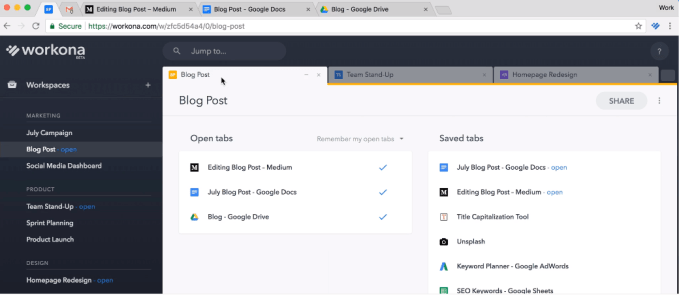Grab’s acquisition of Uber’s Southeast Asia business in May has been embroiled in regulatory scrutiny, but the ride-hailing firm has some positive news after the Philippines’ regulator gave the deal the all-clear. It did so, however, whilst laying out terms to prevent the company from becoming overly dominant.
Singapore’s watchdog said in July that competition concerns may see it unwind the deal, which saw Grab pick up and then shutter Uber’s ride-hailing and food delivery business while the U.S. got a 27.5 percent stake in its recent. Competition is also a concern in the Philippines, but the Philippine Competition Commission (PCC) ruled today that Grab will submit to “service quality and pricing standards” in order to ensure consumers are treated fairly.
Singapore and the Philippines have been the most staunch investigators of the deal, so today’s news is a significant boost for Grab, which recently scored $2 billion in funding from Toyota and a range of other investors. Despite the okay, the PCC is keeping a firm eye on the situation after it concluded that “Grab operates as a virtual monopolist.”
The commission said that, post-Uber, Grab has committed to a series of terms that include more consistent and transparent pricing, the removal of exclusivity deals for drivers, and more.
Here is the full list of clauses from the PCC website:
- Service Quality Commitment: Grab shall commit to bring back market averages for acceptance and cancellation rates before the transaction, and response time to rider complaints.
- Fare Transparency Commitment: Grab will revise its trip receipt to show the fare breakdown per trip, including distance, fare surges, discounts, promo reductions, and per-minute waiting charge (if reinstated by LTFRB).
- Commitment on Pricing: Grab shall not have prices that have an “extraordinary deviation” from the minimum allowed fares. Grab will be penalized equivalent to 5% of Grab’s commissions, or up to P2 million, in the identified trips with extraordinary deviation that do not have sufficient justification.
- Removal of “See Destination” Feature: Grab will remove “see destination” feature for drivers with low ride acceptance rate.
- Driver/Operator Non-Exclusivity Commitment: Grab shall not introduce any policy that will result in drivers and operators being exclusive to Grab. Current Grab drivers/operators are allowed to register/operate under other Transport Network Companies (TNCs) through a multi-homing scheme.
- Incentives Monitoring Commitment: Since incentives may result in drivers remaining exclusive to Grab, and thus affect its competitors’ conditions of entry and the ability to expand, the Commission shall monitor and evaluate Grab’s incentives on the basis of mandatory quarterly reports.
- Improvement Plan Commitment: Grab will implement the following: (1) enhance driver performance standards, (2) adopt a Driver Code of Conduct, (3) establish a Grab Driver Academy; (4) adopt an emergency SOS feature, help center, and passenger no-show feature; (5) adopt a Passenger Code of Conduct; (6) maintain dedicated service lines subject to prevailing labor regulations; (7) adopt a Driver Welfare Program; and (7) implement a Driver Rewards Program.
The PCC said it will appoint a third-party to monitor Grab’s progress in adhering to these terms, which it hopes will hold the company to account in the same way Uber’s competition did.
“The PCC’s Commitment Decision holds Grab to a standard as if Uber were present in the market. In effect, while Grab operates as a virtual monopolist, the commitments assure the public that quality and price levels that would prevail are those that had been when they still faced competition from Uber. Moreover, the commitments ensure that the merger will not make it more difficult for new players to enter and grow,” PCC Chairman Arsenio M. Balisacan said in a statement.
The pricing component is particularly important.
Since Uber’s departure many users, particularly those in the Philippines, have complained about rising prices on Grab since the exit of Uber. The company previously brushed that concern aside, claiming that it hasn’t increased prices but the differences between its costs and Uber’s are down to an alternative pricing model. In Grab’s case, the company told TechCrunch it has “always maintained a competitive per KM fare with 2.0 surge max.” Uber’s surge, it said, could reach 4X.
That’s been dismissed by many users but those in the Philippines can at least take hope from the fact that their regulator is pushing the issue.
There’s also very legitimate concern that Grab’s position has made it impossible for new entrants to challenge its business.
Indonesia’s $5 billion startup Go-Jek is in the process of expanding its business regionally after it went live in Vietnam this month. The Philippines and Thailand are also on its new market list for 2018. But Go-Jek has had to raise over $1 billion to get its shot, and there’s no guarantee it will replicate its dominance in Indonesia in other countries.
The fact remains that other ride-hailing rivals of scale are near-impossible to find in Southeast Asia even though Grab co-founder Hooi Ling Tan said publicly that “there’s still a lot of existing competition.” In most cases, Grab’s stiffest competition is local market taxi firms, many of which have added app-based bookings to bolster their business.
Grab said in a statement that it has made the commitments voluntarily and that it supports competition:
We are happy that the Philippine Competition Commission (PCC) has recognised the legality of Grab’s deal with Uber in Philippines and accepted Grab’s voluntary commitments. PCC’s pro-innovation approach and forward-looking decision sets a strong example for other regulators examining the Grab-Uber deal, and encourages fair competition and a level playing field that ultimately benefits consumers and drivers. As we move forward to become an everyday app that serves the daily essential needs of people in Southeast Asia, we will continue to stay focused on serving the best interests of our consumers and partners.
Aside from its new funding, which takes the company to $6 billion raised to date and gives it a valuation of $11 billion, Grab has been busy expanding its reach.
The company widened its GrabFood service across the region thanks in no small part to the UberEats, while it is rolling out a revamped version of its app that emphasizes its collection of services that include deliveries, payments and ride-hailing. Part of that strategy included the launch of a platform that allows third-parties to tap the Grab platform and bring their services into its app. The launch partner for that was food delivery service HappyFresh, which is rumored to have picked up funding from Grab.
Investment is another area where Grab is stepping up. It recently announced Grab Ventures, a division that will handle strategic investments and manage an accelerator program called ‘Velocity.’


 That’s right. Google mispelled the “Royale” in Battle Royale. It was likely an honest mistake, but given the fact that Epic Games is making upwards of $300 million in revenue a month, which Google is not getting a cut of, it makes for some fun back-and-forth for us spectators.
That’s right. Google mispelled the “Royale” in Battle Royale. It was likely an honest mistake, but given the fact that Epic Games is making upwards of $300 million in revenue a month, which Google is not getting a cut of, it makes for some fun back-and-forth for us spectators.

